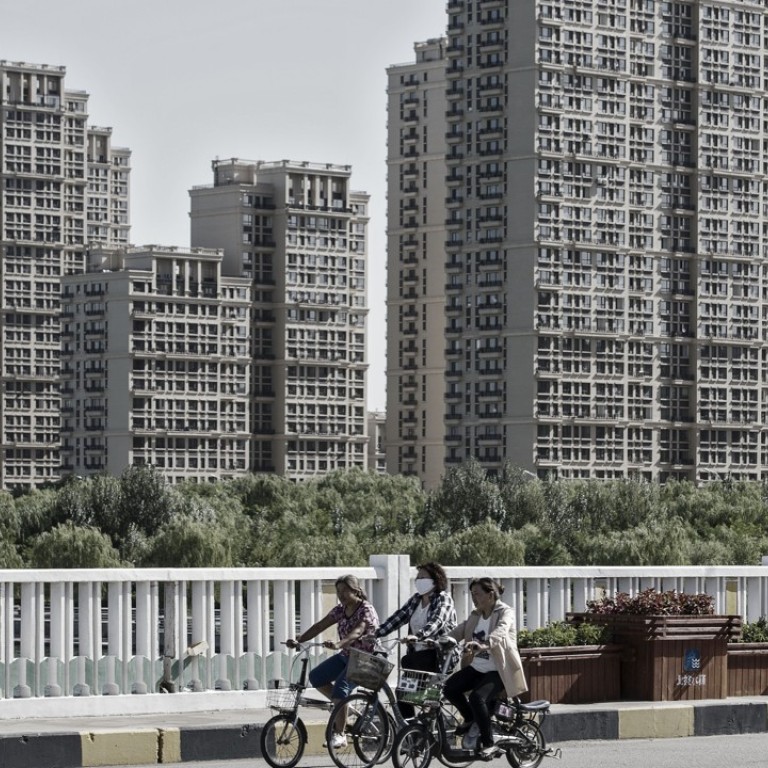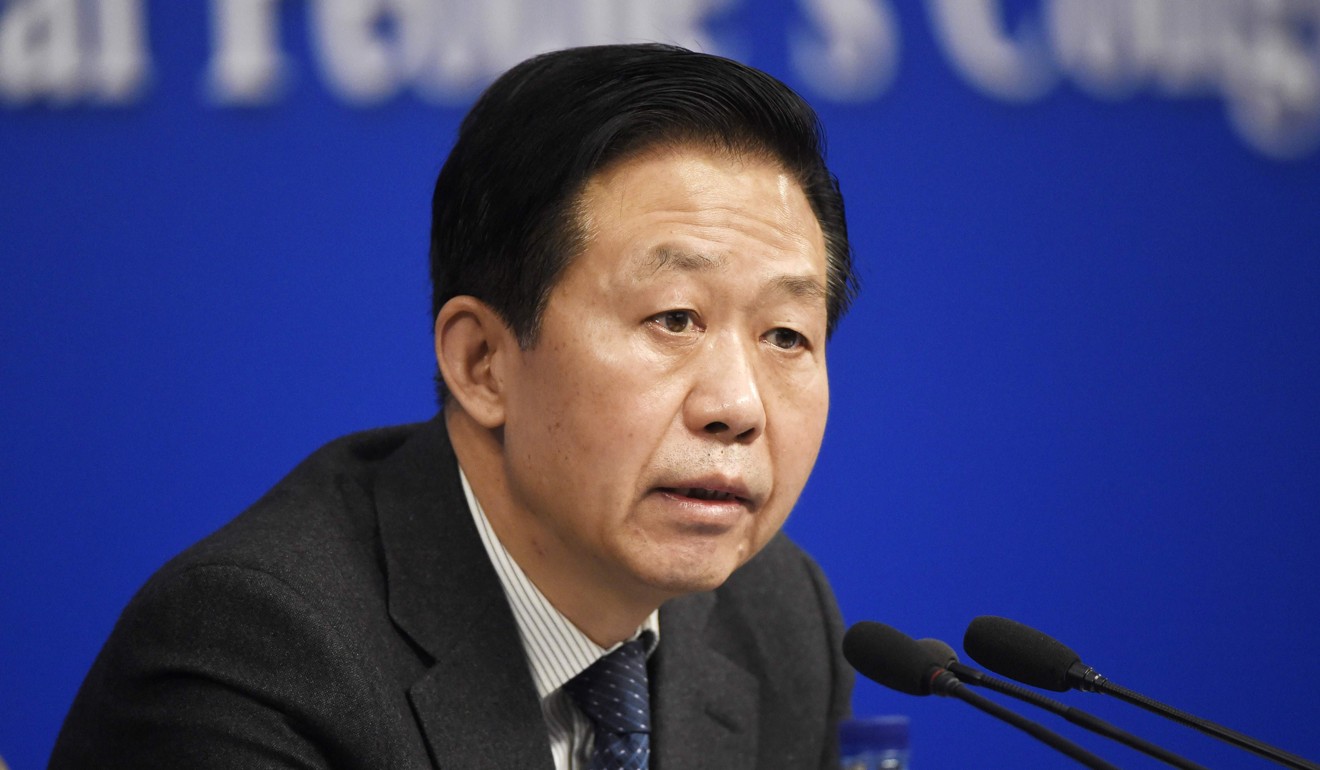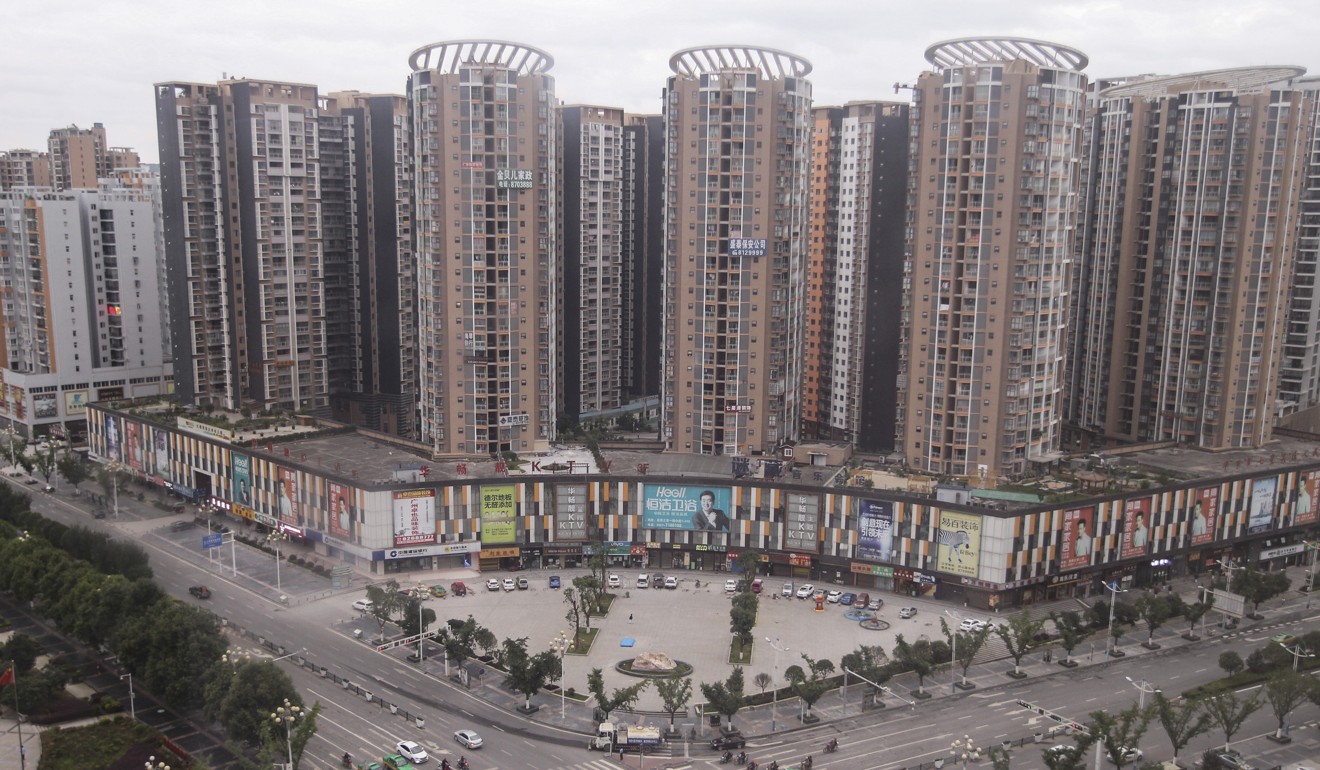
China property tax based on ‘appraisal value’, with legal process to be in place by 2019
Policy statement in People’s Daily story on Wednesday offers strong hint long-delayed, much-debated property reform is gaining momentum, say analysts
China’s new residential properties tax will be based on “appraisal value”, Finance Minister Xiao Jie confirmed in an article published by the communist party’s flagship newspaper, suggesting the top leadership has finally reached initial consensus, which should see an acceleration of its introduction.
However, apart from suggesting all legislative procedures will be completed by 2019, many of the finer details still remain unclear, in what has become one of the most contentious issues among residents.
“Existing industrial and commercial properties, as well as individual houses, will be taxed on the basis of an appraisal value, while current taxes on new builds will be lowered,” Xiao said in an article published in the People’s Daily on Wednesday.

China currently only taxes individuals when they buy or sell property, and the introduction of a new property tax has become a highly contentious issue.
It shows the top leadership is forming a clear vision on property taxes. It touches on the specific questions of how tax will actually be collected, and is a signal that property tax reform is gaining pace
The minister first revealed the likely residential properties tax will be based on appraisal values in October, in an official pamphlet that highlighted top officials’ speeches and an interpretation of President Xi Jinping’s main policy address, in a wrap-up of the 19th Party Congress in Beijing.
Reiteration of the government’s plan to push ahead with a property tax, publicised in a Party newspaper with a much wider readership, suggests consensus has been reached and that the tax plan will go ahead.
“It shows the top leadership is forming a clear vision on property taxes. It touches on the specific questions of how tax will actually be collected, and is a signal that property tax reform is gaining pace,” said Yan Yuejin, a researcher with the Shanghai-based E-house China R&D Institute.
The Chinese government has long toyed with the idea of taxing owners of residential flats, the biggest part of Chinese households’ wealth, in an effort to tame skyrocketing house prices, redistribute wealth while at the same time boost government coffers.
Beijing has said in the past that allowing the country’s vast residential stock – which some estimate to be US$44 trillion – to go untaxed was hugely unfair for those not yet on the property ladder or those who own one small unit, as people who have bought multiple homes have had years of value appreciation without paying tax. By levying the tax on existing homes, it is hoping to deter speculators from buying multiple homes.
Opponents of the proposed new tax argue that unlike other countries, Chinese citizens do not actually own the permanent rights to their homes, they just hold 70-year leases on the properties and should not be forced to pay any property tax.
Others also fear that a new tax would seriously dampen the property market, a huge part of the overall economy, which is already cooling.
Arguments have raged over whether to tax on current market value, or original purchase price, to tax all properties or only newly acquired properties, and what exemptions might be set, leaving the complicated issue of property tax effectively on hold in recent months.

But Xiao said in the article that legislation is being planned for the actual imposition of a new property tax but that its implementation will be pushed forward “step by step”.
He said all legislative procedures will be completed by 2019 and by 2020 and there will be clear laws on all kinds of taxation, given that some currently have no specific laws in place.
But doubts will still linger over the issue, with experts agreeing the devil will remain in the details.
“If [the new tax] is purely based on market value, that’s unreasonable because the current market value contains lots of bubbles, and fluctuates a lot,” said Hu Yijian, a public finance professor with Shanghai University of Finance and Economics.
“But basing it on original price is also unfair, because the tax would fail to take into account asset appreciation.”
Hu said both simple market value, or original value, also failed to consider other complex issues, too, such as the size, type or range of residential properties to be taxed.
Xiao’s “step by step” comment, he added, implied a region-by-region approach to start, with taxes likely to be initially implemented in the cities with the biggest price inflation, then introduced to smaller cities and rural area.
Li Zhanjun, chief researcher with China Real Estate Association, a long-time critic of a new property tax, said if it is to be imposed, it should exclude the value of the land – all of which remains owned by Chinese government – and be based only on the value of the actual units.
How homes are evaluated is also likely to continue to be a potential flash point, he added, as it remains unclear if “appraisals” would be made on an individual basis, or generally on certain types and sizes of property, and where they are.
“Property tax reform should be a systematic project,” said Li.
“By imposing such a new tax, the state should also reduce redundant taxes currently levied on land purchase, construction and sale points.
“And they should make sure that after any reforms are made, the total tax burden on any individual does not increase, and the new tax can be offset by reductions in existing taxes.”

